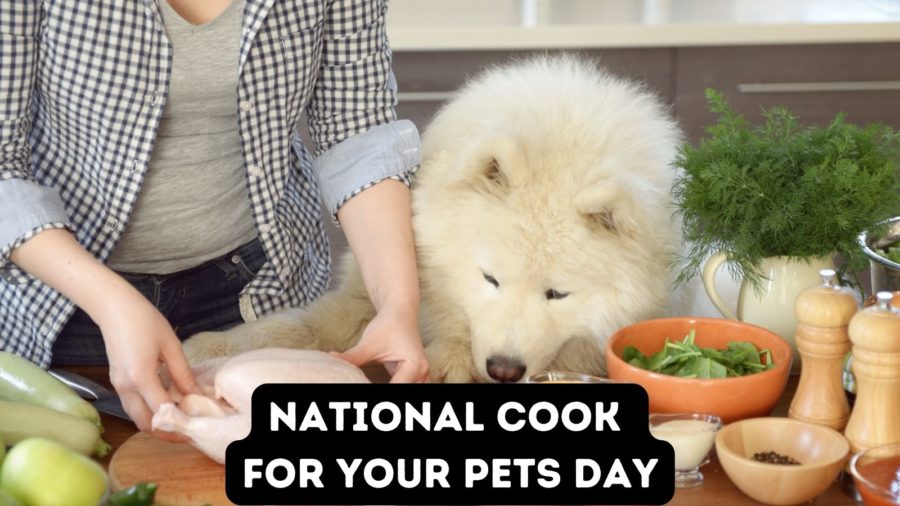National Cook For Your Pets Day
Cooking for others can be a special act of love–and that includes cooking for our dogs! From selecting ingredients to preparing the dish, creating meals and treats for your dog can a fun and healthy way to add variety to your dog’s diet. Every year, National Cook for Your Pets Day recognizes the joy pets and pet lovers get in preparing special dishes and treats.

When is National Cook for Your Pets Day?
National Cook for Your Pets Day is celebrated on November 1. This dog holiday is celebrated on the same day every year. It was created by a now-defunct site called Cook for Your Pets.
